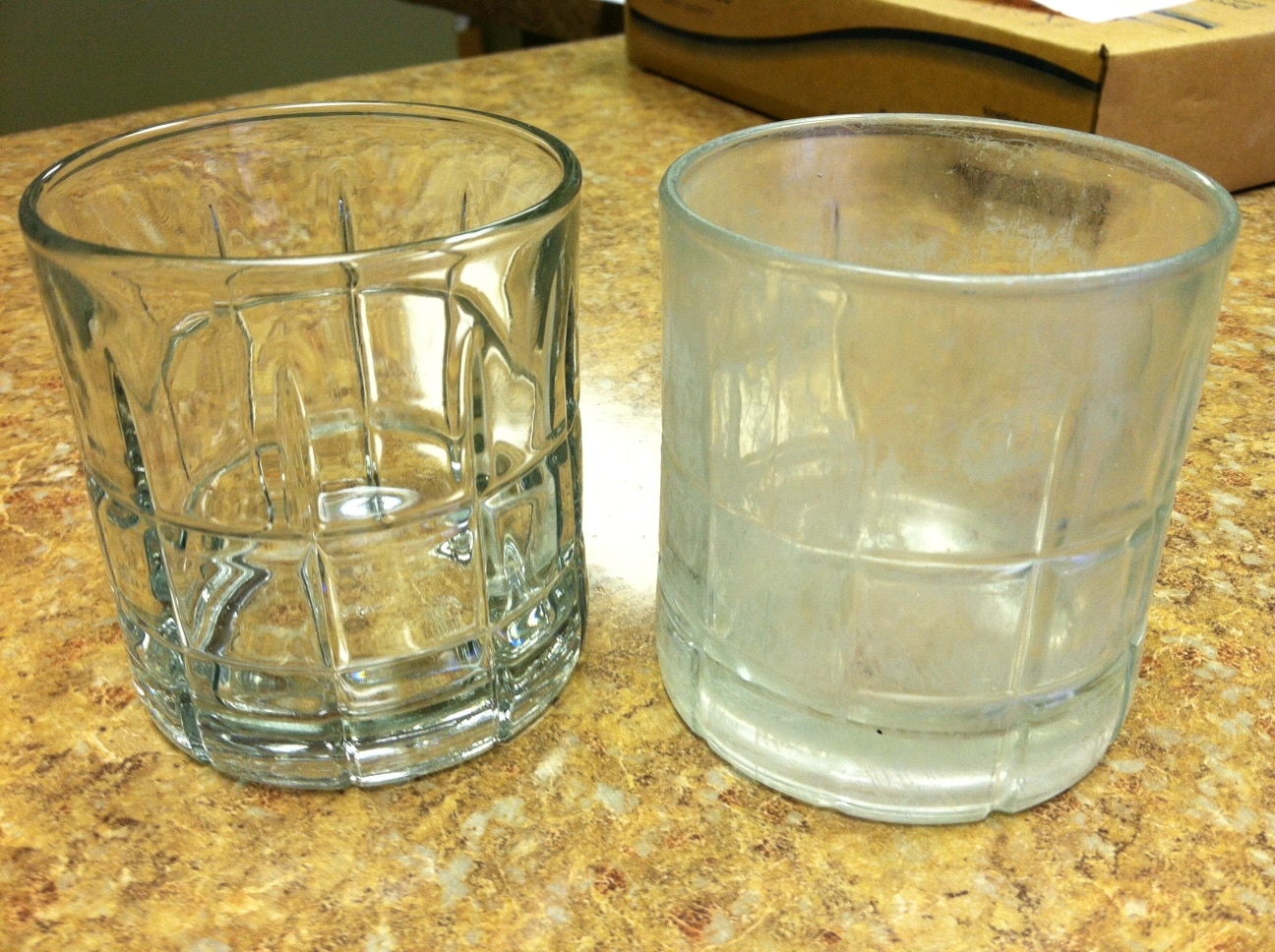Hard water is a standard issue around the world which produces the scales and corrosion around the surface, taps and inside pipes. However, both hard and soft water is safe for drinking, bathing and cooking. But before we go further, let’s know what hard water is.
 Hard water is water with the higher amount of Calcium and Magnesium present in it. These minerals are safe and suitable for human health but produce many issues. Therefore, some people like to treat the hard water and turn it into soft water.
Hard water is water with the higher amount of Calcium and Magnesium present in it. These minerals are safe and suitable for human health but produce many issues. Therefore, some people like to treat the hard water and turn it into soft water.
How to know your tap has hard or soft water:
First of all, let’s determine the difference between hard water and soft water.
Lab test:
Send a water sample to any laboratory which will measure the quantity of calcium and magnesium present in it. When the amount of calcium carbonate is less than 61mg/liter than it is considered as soft water, any water which has amount above 61-120 mg/liter is known as hard water. Once the amount of calcium carbonate is increased to 121-120mg/l it will become moderately hard water, 121-180mg/l is known as hard water and the last stage is permanent hard water with above 180 mg/l.
Soap test:
Another easy way to test your tap water is hard or soft is to conduct a soap test at home. Take soap and a bucket of water. Try to make leather out of it. If it turned out limky white color with less or no leather, your water is hard. But if it forms bubbles and leather, your water is soft.
Some hard water treatments are:
Usually, the water in your tap is already treated by the municipal water filtration system and the water is suitable for using for household purpose. But if not, you have to treat it separately
1. Boiling method:
One standard practice to treat your hard water and turn it into soft is through boiling method. When water is boiled, the calcium carbonate is evaporated leaving the water soft. It is a common practice done to treat water on a small scale as well as on the enormous level.
2. Chemical Water softeners:
It is a water conditioning method for permanent hard water. In permanent hard water, the water gets in contact with other minerals too like gypsum or calcium sulfate which cannot be removed through boiling. That is why you need to add the water softener which removes impurities from the hard water.
Many states in USA pre-treat the hard water before it leaves the filtration plant. But in many countries of the world including some states of USA, the water is still hard for using and the users have to treat it themselves at home by installing the water conditioning devices. They have to buy and use the water conditioning chemicals to treat your water.
The main issue with both of the above water conditioning methods is each take a lot of time, money and process to treat the hard water. It not only adds up a good amount of money in your monthly electricity and gas bills but also it takes hours to boil and get a sufficient quantity of water at the same time. That is why EWC can be used to cut off your bills and lengthy process.
3. Electronic Water Conditioner:
EWC is a life savior especially when you are looking to save money and get the job done efficiently and quickly. Electronic Water Conditioner is a simple device which separates the Calcium and Magnesium ions from water and let it flow in pipes without causing the corrosion and scaling. That is why it don’t require any chemicals, salts and boiling and can be used in any pipes with easy installation. Since it works on its own, it requires zero maintenance, no added chemicals and salt and saves you from boiling and any other process whatsoever. On the other hand, the water flows through the pipes and can be used for cooking and drinking which is good for your health.
Therefore, Electronic Water Conditioners is Eco-friendly, energy efficient and time-saving methods which can be used in homes, offices, commercial places and industrial areas.
Why is Electronic Water Conditioners the best way to treat the hard water?
When compared to the other water conditioning methods, EWC is the best one to turn your hard water into soft because:
- It allows you to save money on your power bills since no boiling is required in this method.
- You save money on the chemicals too, as no salts and chemicals are used in the water conditioning process
- The treated water is good for health as it is enriched with minerals
- It is an eco-friendly method, as no processed water is going back to the main water line, ground or filtration plant to be used for farming or any other reason
- It is easy to be used and can be installed on any pipe without hassle. It requires no maintenance and repair.
- It is a suitable solution for small and large-scale water conditioning.
- It saves time in processing and boiling and much convenient to be used at industrial and commercial places.
- Electronic water conditioners are the best solution for hard water-related issues like usage of more detergents, cleaning chemicals, cause no corrosion and scaling as well as maintain a good flow of water.
Author Bio:
Harry James is a freelance blogger and a professional content writer. He love’s to write on any niche, currently working as a content analyst at H2O Elite Labs!











